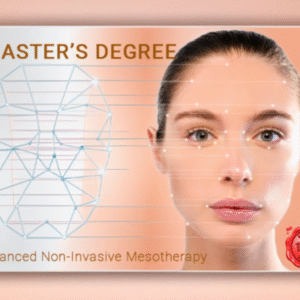What You’ll Learn in a Phlebotomy Course
Anatomy & Physiology: Understanding veins, circulatory system, and where to safely draw blood.
Infection Control & Safety: Using gloves, disinfectants, sharps disposal, and avoiding contamination.
Venepuncture Techniques: How to locate veins, insert a needle, and collect blood into tubes.
Patient Care: How to reassure patients, especially those with needle anxiety.
Practical Training: Hands-on supervised practice taking blood from real or simulated patients.
Legal & Ethical Aspects: Consent, patient records, and professional standards.
Entry Requirements
Often no prior medical training required (though some courses prefer healthcare background).
You’ll need good communication skills and a calm, professional manner.
Outcomes
You get a Phlebotomy Certificate of Competence (or equivalent depending on your country).
Opens opportunities to work in hospitals, GP practices, labs, blood donation centres, and private clinics.
Can be a stepping stone into broader healthcare careers (nursing, lab work, etc.).
PLATELET RICH PLASMA (PRP)

Our exclusive Platelet Rich Plasma (PRP) Training Course
Advanced Course
- Hands on practical session – skin rejuvenation and hair loss
Extraction, Preparation and Dosage Management
Injection techniques – face, neck and head (hair loss); also the use of cannula
Upon successful completion of the course, you will receive a certificate and title of Phlebotomy & PRP Certified Practitioner and receive 8 CPD points
Frequently Asked Questions (FAQs)
1. Do I need any prior medical experience to join the course?
No prior medical training is required for the phlebotomy component, although a healthcare background can be an advantage. Our course is designed to suit beginners as well as professionals looking to upskill.
2. What qualifications will I receive after completing the course?
You will receive a Phlebotomy & PRP Certified Practitioner Certificate, along with 8 CPD points, which are recognised as part of your professional development.
3. What skills will I gain from this course?
You will learn:
-
Safe blood collection techniques (venepuncture)
Infection control and patient care
Preparation and handling of Platelet Rich Plasma (PRP)
Injection techniques for skin rejuvenation and hair loss treatments
4. Is the training hands-on?
Yes. The course includes practical supervised training, where you will practice phlebotomy and PRP injection techniques in a clinical setting.
5. How long is the course?
The training is typically a one-day intensive course, combining theory and practical sessions. (Exact duration may vary depending on your enrolment date/location.)
6. What career opportunities will this qualification open?
After successful completion, you can work as a phlebotomy professional in healthcare settings (hospitals, GP practices, clinics, laboratories, donation centres). With PRP certification, you can also expand into aesthetic and regenerative treatments.
7. Is PRP training safe to perform after this course?
Yes. You will be trained in PRP extraction, preparation, dosage management, and injection techniques, enabling you to safely and effectively provide PRP treatments under appropriate clinical guidelines.
8. Do I need to bring anything to the course?
No, all equipment, materials, and models for practical training will be provided. Just wear comfortable professional clothing (e.g., scrubs).
9. Will I be able to practice immediately after completing the course?
Yes — once certified, you can begin offering phlebotomy services and PRP treatments (subject to your local regulations and licensing requirements).
10. Where does the training take place?
Training is conducted in our fully equipped clinical training centre, with facilities for both theory and hands-on practical sessions.





